Quibi dared Hollywood directors to make movies for phones. Who bit and what they learned
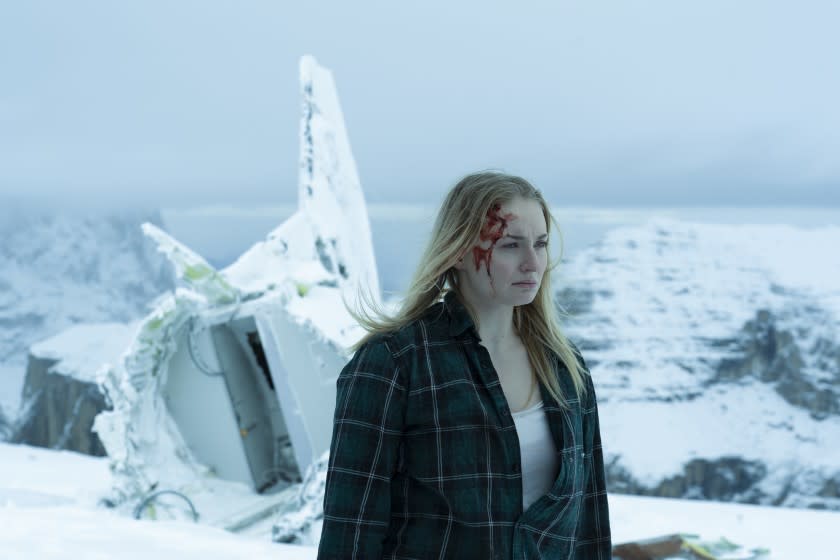
When Quibi founder Jeffrey Katzenberg first met with director Antoine Fuqua to pitch him the idea for a new streaming service that would deliver "quick bites" of video to watch on the go, the filmmaker was understandably skeptical.
Fuqua has spent more than 20 years making movies like "Training Day," "Olympus Has Fallen" and "The Magnificent Seven," painstakingly crafting immersive cinematic experiences to be shown in all their widescreen glory in movie palaces around the world. He has drawn inspiration from master filmmakers like Akira Kurosawa. Now here was Katzenberg laying out his vision for movies made to be watched on a phone, broken into snackable 10-minute chunks that could be watched while, say, standing in line to buy toilet paper.
But Katzenberg, who has enjoyed an illustrious career as a top executive at Walt Disney Studios and DreamWorks, is nothing if not persuasive. "Jeffrey was just so passionate and clear about the idea of creating quality content for the phone," Fuqua says. "As a filmmaker, for years you’ve dreamed of making movies for the big screen. Instinctively, your brain is built for that. But it was one of those 'eureka' moments. I have kids — they’re always on their phones. Adults walking down the street — they’re always on their phones. It just makes sense. The next step was obviously: How do you do that? What does that look like?"
By definition, films as we've long known them are made to be seen on the big screen by audiences sitting quietly in the dark, with a tub of popcorn — period. "If you're playing the movie on a telephone, you will never in a trillion years experience the film," David Lynch said in 2008. "You’ll think you experienced it but you’ll be cheated …. Get real."
With Quibi, which launched on Monday, Katzenberg and his partner, Quibi Chief Executive Meg Whitman, are banking that in an ever more mobile, on-demand, attention-span-challenged world, those old rules may no longer apply. Indeed, with four "movies in chapters" available off the bat — and many more in the works from A-list filmmakers such as Guillermo del Toro, Steven Soderbergh, Sam Raimi and Steven Spielberg — one could argue that the company is unleashing one of the boldest cinematic experiments in memory, one that could either expand the possibilities of the art form for the TikTok generation or, more pessimistically, hasten its demise.
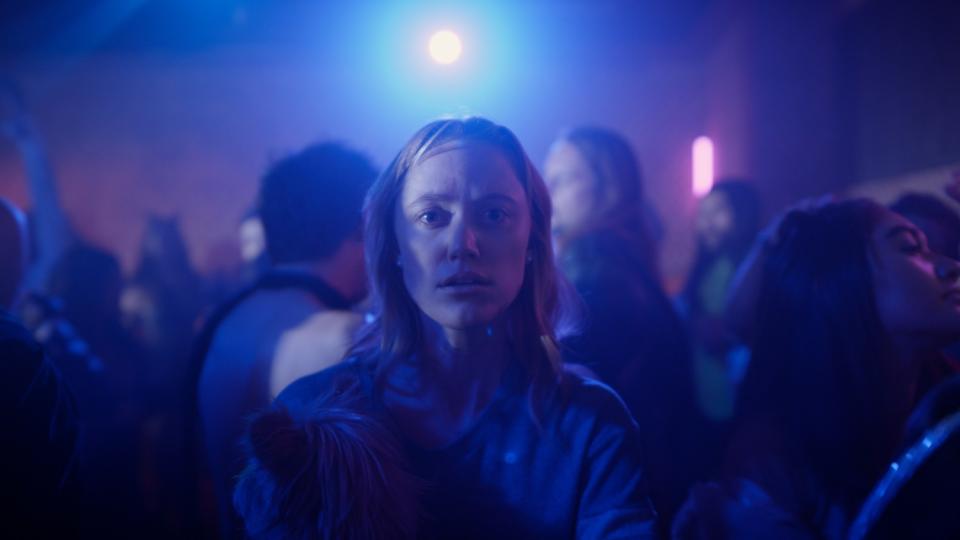
'Turnstyle' shooting
Veena Sud, whose Quibi thriller "The Stranger" debuts Monday, says she jumped at the chance to be part of what she calls "nothing short of a revolution in how we view film and TV content." But that's not to say the path forward was clear.
"I was one of these people too who was cursing every time I saw someone watching something on a phone and lecturing how it’s not the same experience," says Sud, who has worked primarily in television, most notably developing and executive producing AMC's "The Killing." "Having that wide screen enables us to tell beautiful, cinematic stories, even on television. I had to wrap my head around, 'OK, this is tiny.' We're being asked to make something for a phone that is as deep and powerful as a film that we watch traditionally. But I love challenges. Here’s a new paint set. Here’s a new instrument to play the music on. Why not try it?"
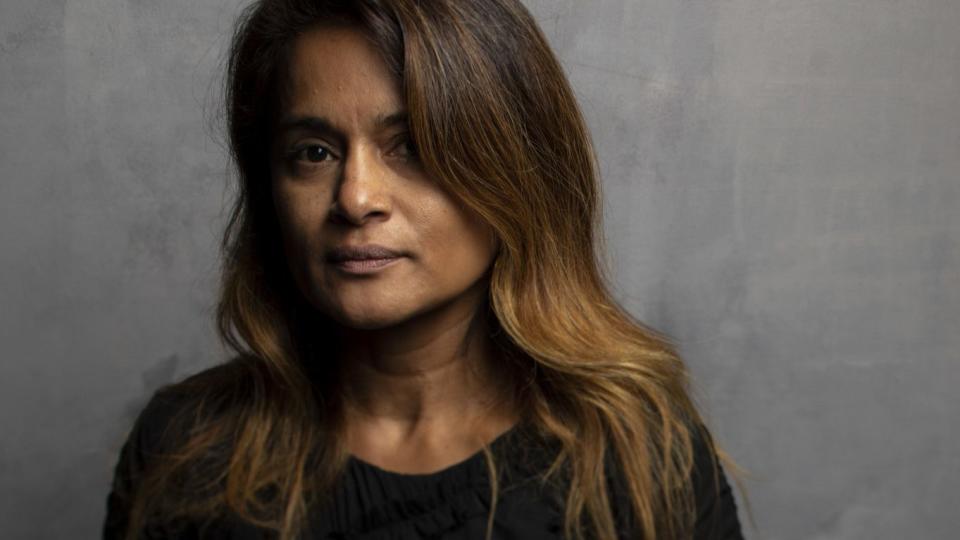
For Sud and the other filmmakers who jumped into the Quibi fray, the biggest challenge, visually speaking, was how to shoot something that can be watched as readily holding the phone vertically as horizontally, a feature that Quibi calls "Turnstyle." Pulling that off required carefully planning every shot with an eye toward what would be in the frame in either orientation. In a vertical format, even simple dialogue scenes involving two characters talking to each other proved challenging.
"It took so much planning to figure out, how can I have conversations that don’t feel like a lot of information is missing?" says Sud of "The Stranger," in which a Los Angeles rideshare driver (Maika Monroe) picks up a passenger (Dane DeHaan) who turns out to be a murderous psychopath. "We used every tool in the toolbox: We stacked the actors so one was in front of the other, we moved the camera, we bounced focal points back and forth, we used depth. We tried to really keep the visual experience engaging and not frustrating."
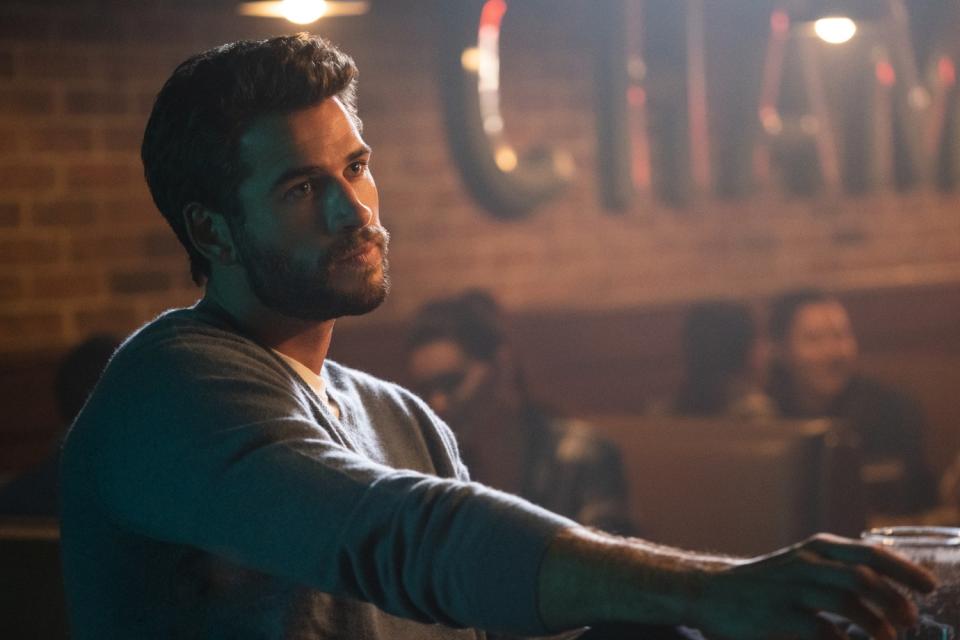
Inevitably, though, cropping a shot vertically means losing key visual information, as any parent who has ever tried to shoot their kid's school play or soccer game in portrait mode on their iPhone quickly discovers.
"It’s just not possible, math-wise, to get everything," says director Mark Pellington, whose suspense film "Survive" is streaming with Sophie Turner starring as a woman recently out of rehab whose plane crashes in the mountains. "A very claustrophobic thriller with hallways and doorways would probably work great vertically. But [in 'Survive'] we're out in the middle of the Italian Alps. Those big, wide aerial shots are the only time I really feel the bite. But it’s just a different thing .... It’s a brave new world. I’m 58 years old. I’ve got to remain as open-minded as a 28-year-old."
"At first, I was like, 'Oh, man, how is this going to look? You’re going to lose so much,' " says Fuqua, who signed on as executive producer on Quibi's action drama "#FreeRayshawn," streaming Monday, about an Iraq War veteran who finds himself surrounded by police inside his apartment building after a drug deal goes bad. "But ultimately when I saw it, I was pleasantly surprised. I had to release my trained vision for the big screen and be open to be excited about what it could be. It creates its own sort of literacy."
At the same time, from a narrative standpoint, Quibi presents filmmakers with the equally vexing problem of how to break a two-hour story into discreet seven- to 10-minute pieces, to be released one per day. It is no accident that among the first crop of movies to be released on the platform — with the exception of the Will Forte-Kaitlin Olson comedy "Flipped" — all are in the suspense genre, which lends itself far more easily to a series of cliffhangers than a talky drama.
Still, even with a thriller, holding a viewer's attention on a phone for 10 minutes at a time is no easy feat, particularly when that viewer could be distracted at any moment by an incoming text from a boyfriend or a phone call from Mom.
"It was challenging," says director Rebecca Thomas, whose high school murder mystery "When the Street Lights Go On" is available on Quibi. "In our first chapter, there’s a funeral, so how do you make that exciting and interesting when it’s not a crazy chase scene? I’m all about the slow moments, but I definitely felt that pressure: What’s the drive here? What's the purpose of this moment? The Quibi model really makes you analyze every frame and ask, do you need it?"
That said, making a film directly for a phone isn't only about sacrifices and workarounds. What it lacks in screen real estate the smartphone makes up for in other potential storytelling capabilities. Spielberg, for example, is developing a horror project called “Spielberg’s After Dark" that will use a phone's GPS to ensure that a viewer can watch a new chapter only after the sun has gone down wherever they happen to be.
"Every single person in the world has a personal relationship with their phone, and there are possibilities of things happening with it that are interactive and go right into our brains," says Sud. "In 'The Stranger,' a man is using a phone to track a woman, and the horror of his knowledge of where she is grows every time he sends her a text. We all have a Pavlovian response whenever we get a text ding. So you think, how can we that elicit response in you? Your phone could vibrate."
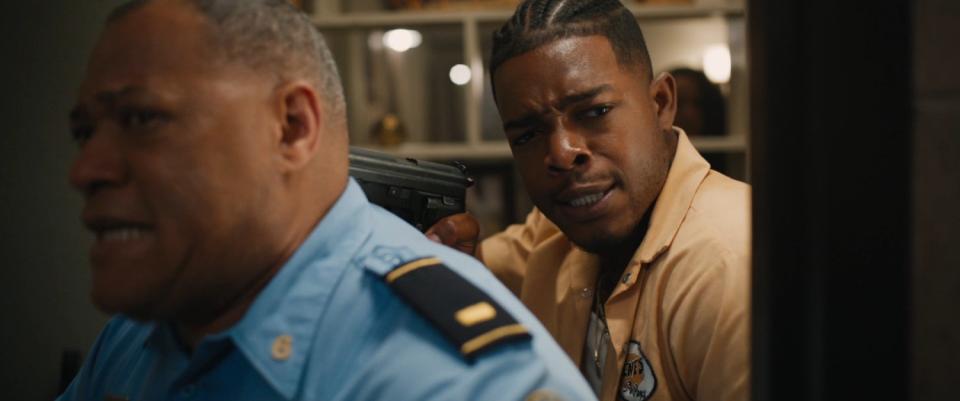
Still a movie?
But the question remains, is a movie made for a phone, with its story broken into bite-sized nuggets, still a movie? What, one might ask, is the difference between a movie chopped up into 10-minute chapters and a scripted series broken into 10-minute episodes? At a time when the boundary lines between film and television are growing blurrier by the day, Quibi deepens the ambiguity — and even embraces it. In speaking about their projects, Quibi's filmmakers shift back and forth between the language of film and television. Even Quibi's official publicity materials alternately refer to the same titles as "movies in chapters" and "shows."
"It’s an interesting question," says Thomas, who has worked primarily on TV series, including Netflix's "Stranger Things." "I’ve been trying to make my second feature since I made my first one, 'Electrick Children,' in 2012, and this is the closest I’ve come to it, because it is told in about two hours and there is a beginning, a middle and an end. It feels like a chapter book to me. I don’t know what that means about a season two. But to me it does feel rounded out."
Further muddying the picture, under Quibi's unique deal structure, filmmakers who make a project for the platform retain the ability to later re-release it in a different form. After a period of seven years, during which Quibi has the exclusive license, ownership of the project reverts to the creator. After just two years, creators can take that content, reassemble the 10-minute chunks into a traditional movie and shop it elsewhere.
"I don’t think people really understand what Quibi is yet," Thomas says. "When I explain it to other directors, they’re like, 'OK, whatever.' But I think they’ll be excited about it once they see it. Quibi is really taking risks in terms of the kinds of stories they want to tell. What I’ve been telling other filmmakers is, you can really get your crazy project made at this place and they’re willing to give you creative license and trust you."
In the end, for all of their idiosyncratic particulars, Quibi's "movies in chapters" are like conventional films in one key respect: The audience will ultimately decide if they succeed or not. At this point, with so much competition for eyeballs, it remains to be seen how many people will actually be willing to pay $4.99 a month to subscribe to the service, which is offering a free 90-day trial — and how many of those will watch the service's movies as opposed to its many more scripted and reality series.
Amid a pandemic that is keeping content-hungry viewers trapped in their homes, that calculus has grown only more uncertain. Still, whatever his initial concerns as a cinematic true believer, Fuqua, for one, is now fully on board with Quibi and eager to see how Katzenberg's brainchild plays out.
"Jeffrey said to me, 'You’re going to have a lot of knives in your back doing the first one,' " Fuqua says. "But I’m excited about what it can do to entertain the audience. In the world we’re living in right now, you could see how Quibi would be helpful to people who can’t move around as much. And hopefully in the future even when people are moving around again, it could still be a part of your life. I've been talking to Jeffrey about other ideas. I think the playing field is wide open as far as what it can be."

